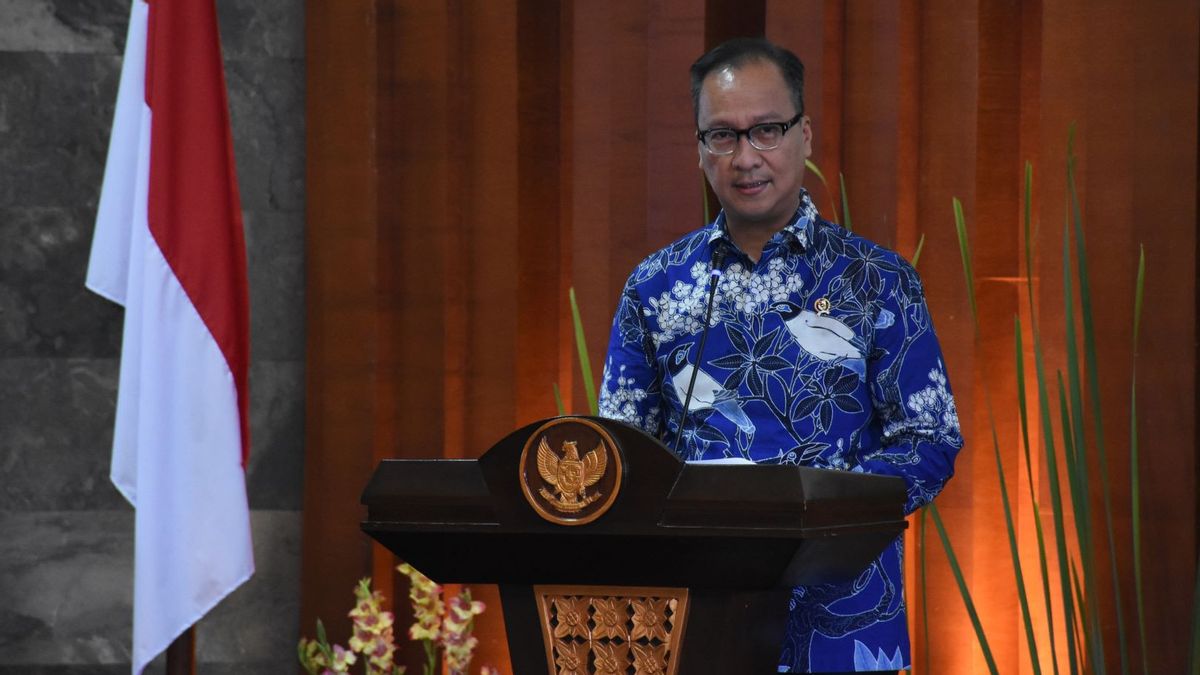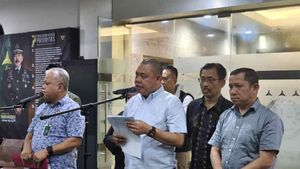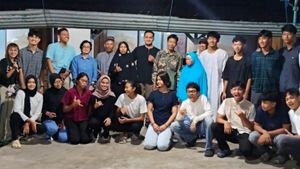JAKARTA - The Ministry of Industry is determined to continue encouraging the downstream industry because this activity aims to increase the added value of domestic raw materials. Therefore, it is necessary to support the implementation of the raw mineral export ban policy.
"That policy is what the Ministry of Industry is waiting for. This is because the ban can spur performance in the upstream industrial sector, and is also expected to invite investment in this sector to Indonesia, "said Minister of Industry Agus Gumiwang Kartasasmita in Jakarta, Sunday, February 2.
The Minister of Industry said that Indonesia has a wealth of natural resources that can be processed as industrial raw materials. Apart from minerals, another commodity with considerable potential is crude palm oil (CPO).
"Indeed, CPO is a commodity that is being optimized for domestic needs, because we are building the B30 program and in the next two years it will be developed into B100," he explained.
Therefore, the government is optimistic about the downstream industry which is considered to be able to maintain the strength of the national economy so that it is not easily swayed in the midst of fluctuations in commodity prices. In this case, the domestic processing industry needs to be spurred on by growth and development because it plays an important role in increasing the added value of natural resources to be made as semi-finished goods to finished products.
"Hence, we must focus on the downstream industry, which of course will bring a leap of progress for our economy. So far, the downstream industry has provided a wide multiplier effect, both state revenue through exports and increased employment, "he said.
However, according to Agus, downstreaming needs to be supported by the use of new technology, including the application of the industrial era 4.0 to boost productivity more efficiently. "I am happy and proud. We all share the same views about the importance of innovation. The downstream view must be encouraged in Indonesia. This is the main program, "he said.
Furthermore, with this determination, a number of large global scale industries are interested in entering and opening their production and research activities in Indonesia.
"In line with this, the government is encouraging the improvement of the quality of human resources and R&D activities for innovation. That is Indonesia's comparative advantage compared to other countries, "he added.
The Ministry of Industry noted that the downstream industry has been running in various sectors, including mining and plantations. For example in the Morowali Industrial Estate, Central Sulawesi, which has succeeded in downstreaming nickel ore into stainless steel.
As an illustration, the price of nickel ore if it is sold is only around 40-60 US dollars, while when it is made into stainless steel the price can be over 2,000 US dollars. Meanwhile, through the Morowali Industrial Zone, it has been able to penetrate its export value of 4 billion US dollars, both shipments of hot rolled coil and cold rolled coil products to the United States and China.
The contribution of the Morowali Industrial Estate is also shown from the investment achievements that continue to show an increase, from 2017 amounting to US $ 3.4 billion to US $ 5 billion throughout 2018. The number of employment absorption is quite large, up to 30 thousand people.
Another leap of progress in the application of industrial downstreaming, namely exports of processed palm oil, which is dominated by downstream products, has tended to increase in the last five years. Its contribution to foreign exchange earnings is quite significant. In 2018, the ratio of the export volume of raw materials and downstream products was 19 percent to 81 percent.
Moreover, Indonesia is the largest producer of crude palm oil (CPO) and crude palm kernel oil (CPKO) with production in 2018 of 47 million tons. The rate of growth in palm oil production is also expected to increase significantly. Meanwhile, exports of palm oil and its derivative products have contributed to the country's foreign exchange of up to 22 billion US dollars per year.
The English, Chinese, Japanese, Arabic, and French versions are automatically generated by the AI. So there may still be inaccuracies in translating, please always see Indonesian as our main language. (system supported by DigitalSiber.id)










